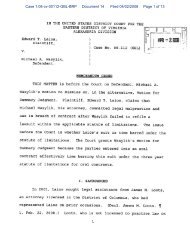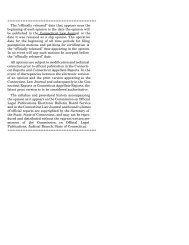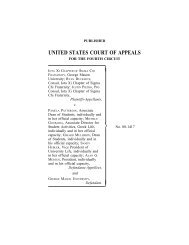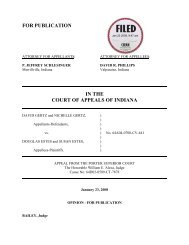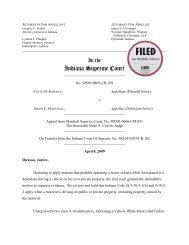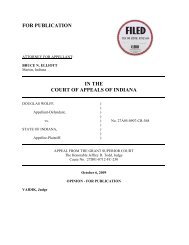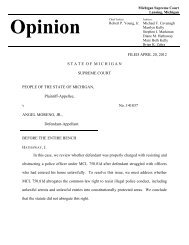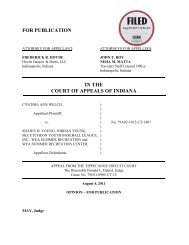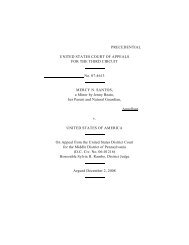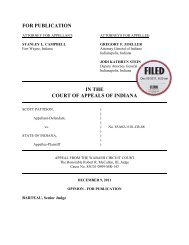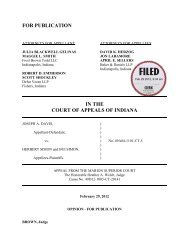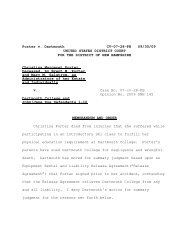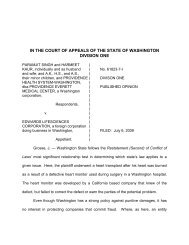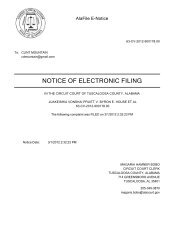IN THE COURT OF APPEAL OF THE STATE OF ... - FindLaw
IN THE COURT OF APPEAL OF THE STATE OF ... - FindLaw
IN THE COURT OF APPEAL OF THE STATE OF ... - FindLaw
Create successful ePaper yourself
Turn your PDF publications into a flip-book with our unique Google optimized e-Paper software.
the relevant scientific or medical community.” (Roberti, supra, 113 Cal.App.4th at<br />
p. 901.) Finally, as Heuser himself acknowledged “most doctors do not know<br />
anything about mold because mold has not been discussed in the regular medical<br />
journals. It‟s an emerging field of medicine.” Thus, the instant case is unlike<br />
Roberti, where the testimony offered by plaintiff‟s experts “both had the tendency<br />
in reason to prove causation, and was based on studies and protocol of a type that<br />
reasonably may be relied upon by medical expert witnesses.” (Roberti, supra,<br />
113 Cal.App.4th at p. 906.)<br />
as a Matter of Law<br />
b. Any Error in Excluding Dee’s Expert Testimony Was Harmless<br />
Even had we found error in the trial court‟s exclusion of Ordog‟s, Heuser‟s,<br />
and Gutierrez‟s proposed testimony on causation, Dee cannot demonstrate<br />
prejudice. She argues that the excluded evidence was necessary to show that<br />
“PCS‟s negligence in allowing the growth of the toxic mold was a substantial<br />
factor in directly and proximately causing [her] brain damage.” The jury, however,<br />
was not required to reach the issue of causation because it found none of the<br />
respondents negligent. Accordingly, the rulings Dee challenges on appeal were<br />
relevant to a question the jury was not required to decide. Thus, even if Dee could<br />
demonstrate error, it would not require reversal. 9<br />
20<br />
(Cal. Const., art. VI, § 13 [no<br />
judgment shall be set aside based on the improper admission of evidence unless the<br />
error resulted in a miscarriage of justice].)<br />
9<br />
Dee discusses the substantial factor rule and general causation. Her specific<br />
contention is unclear. However, to the extent she contends the test for general causation<br />
is incorrect, that argument is irrelevant because the jury, having found no negligence, was<br />
not required to consider causation.



